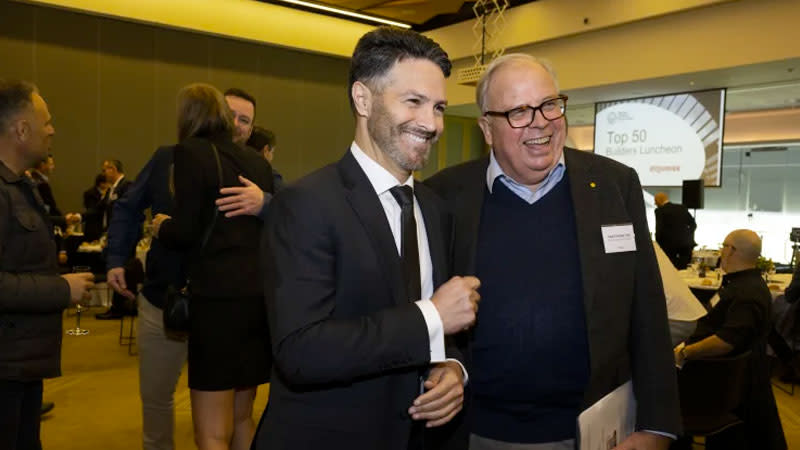Resources
Newsletter
Stay up to date and with the latest news, projects, deals and features.
Subscribe
NSW building commissioner David Chandler has backflipped on his decision to resign, instead recommitting to the role until August 2023.
Chandler resigned abruptly last month, just months after signing a new contract extension, prompting speculation over the circumstances of his departure amid scrutiny over the conduct of recently fired Fair Trading minister Eleni Petinos, to whom he reported.
A building industry veteran of 50 years and NSW’s first building commissioner, Chandler has for the past three years been tasked with cleaning up the state’s construction industry.
In his resignation letter, Chandler warned that the junior minister’s office had become a roadblock to critical legislation and said his personal experience had been one where engagement with the minister’s office had been “problematic”.
Chandler also raised concerns about the minister’s relationship with Coronation Property Group—a Sydney-based developer that counted former deputy premier John Barilaro, after he left parliament, as an executive director until early June this year.
Chandler detailed a series of contacts from Petinos and Coronation Property Group in the letter after he issued a stop-work order on the developer’s $300-million, 790-apartment Merrylands projects in western Sydney. The stop-work order was lifted in July, 2022.
He said that “important pieces of previously canvassed legislation had now run into serious disruption” under Petinos.
Petinos was sacked last month by NSW premier Dominic Perrottet after media reports of unrelated bullying allegations made by a staffer from the junior minister’s office. Petinos has denied the allegations.

Chandler’s resignation letter was handed to the Independent Commission Against Corruption (ICAC) on August 1, the day after Petinos’ sacking, in a move that Perrottet described as “an abundance of caution”.
Perrottet has denied reading the resignation letter before the Department of Customer Services’ secretary, Emma Hogan, referred it to ICAC and has maintained that issues raised by Chandler were “peripheral” and had no bearing on his decision to remove Petinos from his cabinet.
Since Petinos’ sacking, the state government has privately been urging Chandler, a 50-year industry veteran, to remain in the role. Petinos’ successor, Victor Dominello, has been in close communication with Chandler.
In a statement late last week, the new fair trading minister said Chandler would remain in the role until August next year.
Dominello said the commissioner had “made significant contributions to building industry reform in this state and I am happy the work can continue under his leadership”.
“I am a big fan of David Chandler. David is focused on fixing problems and is not afraid to call out bad buildings, bad developers and lack of transparency,” Dominello said.
Chandler said he was looking forward to continuing the work that his team had started.
“Much has been achieved in the past two years but there is still more to be done to establish NSW’s residential building and construction market as the most trusted and customer-centric in the country,” he said.
Chandler has been responsible for the investigation and disciplinary action for misconduct of risk-prone developers, builders and certifiers while overseeing the end-to-end licensing and auditing across the building industry.
He has also been overseeing legislative reforms of the building industry, albeit lightly, with more of a focus on leadership, and using all the levers of the sector, including the financiers and the insurers, as much as legislation, to drive lasting change.
Two bills, the 2020 Residential Apartment Buildings (Compliance and Enforcement Powers) Bill and 2019 Design and Building Practitioners Bill, have been enacted under his stewardship to shore up the state government’s planned six-pillar building reform package.
As part of Chandler’s crusade to restore confidence in the construction sector, he has been championing the roll-out of a public register rating developers and builders in a bid to weed out shoddy operators.
Over his three years in service, Chandler has maintained that about 20 per cent of apartment buildings in the state had “significant issues” such as structural, waterproofing and fire-rating systems that he needed to resolve.